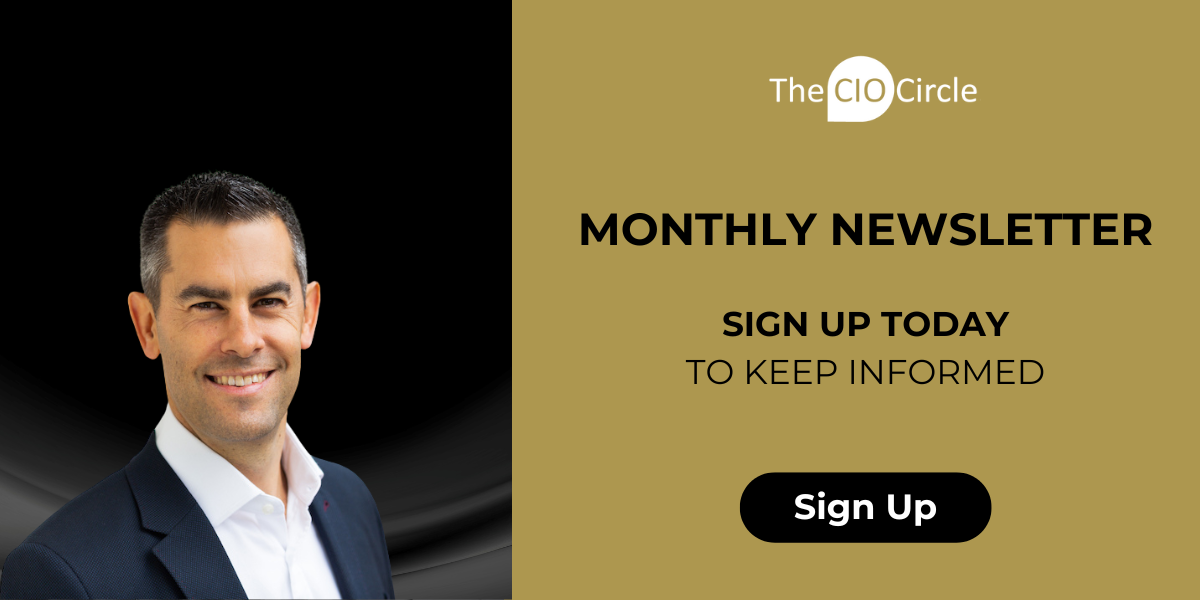Chief Information Officer at MHR
Can you please provide a little introduction about yourself
I am the Chief Information Officer at MHR, the HR, payroll and finance software business. I am based in the East Midlands and have been at MHR just short of 6 years. Until the start of 2024, I was Chief Financial Officer and have been given a unique opportunity to strategically move into the CIO role.
My 30 years across finance are helping me to continue transforming the way we deliver value to our customers.
What path have you taken to your current position?
My background is in finance, where I started in practice and moved to industry. I have worked predominantly in manufacturing and have experience working overseas including in Morocco and Germany.
It was working in manufacturing that I incorporated process optimisation into my finance role. It started with a change in the accounting system, then expanded into a full business systems review. This was when I developed my change management skillset, which enabled me to ensure that efficient, robust and scalable manual processes underpinned the financial reporting of the business.
Over the years and in subsequent roles, I have further developed these skills to help me create a toolkit that has proved useful.
Has it always been your vision to reach the position you’re at? Was your current role part of your vision to become a tech leader?
My original vision was to be a Finance Director and my expectations were exceeded when I was officially promoted to Chief Financial Officer in 2021, though I carried out the duties from 2019. MHR is the first tech business I have worked for, and I found that many of the manufacturing techniques I had learnt over my years in the industry could be applied to a tech business to provide different perspectives. The company, having owners and a C-Suite that are open to different ways of thinking, was important in the application process, and my skills augmented the principles that the business held – principles that continue to make it a strong, innovative and forward-looking company.
As MHR grew, the Group Chairman asked if I would lead the new Information Services department that incorporated the internal technical functions within the business – cybersecurity, corporate IT and digital services. The goal is to have technical services that support the needs of the business, promote the flow of information and are scalable. The challenge for me, and my technical directors, turned out to be a real opportunity and benefit. The team had a non-technical Chief who needed to understand the technical complexities in a simple, ‘no jargon’ way. I had to be able to convey these challenges and the solutions to the wider business so it was easily understood, and therefore implementable.
Have you had a role model or mentor that has helped you on your journey?
Throughout my career, I have worked with some amazing people, both colleagues and bosses. The support and sharing of knowledge that I had at Dewhirst from Levent Demir and Daren Turner is the reason I am in the position I am in today. There have, of course, been many other talented people I have worked with across MHR who I see as role models and mentors.
The trust and support I have had from the Group Chairman, Chairman and CEO at MHR has allowed me to continue to develop and grow. In turn, I have been happy to share my experience with others and with my respective teams, making positive changes for me and the wider business.
How do you see the role of the technology leader evolving over the next 5 years?
Change is certainly accelerating, and whilst technology and the use of AI are increasingly more prevalent, there is still a need for a strong process platform for it to be successful. The principles of People, Process, and Technology should not be underestimated. It will not create enough impact for a business to just apply technology, it must be relevant and be able to meet the objectives of the organisation. I would argue that with the myriad of technical solutions available, the technology leader needs to be more selective as to what would give their respective business a competitive edge – bringing employees along on the journey and not just implementing a technology rollout for the sake of it.
This isn't just the 'look and feel' of the technology or to be able to convey that AI is being used, for example. Leaders must ask themselves what benefits can actually be derived from the investment. This isn't just the quality of the technology itself, but the maturity of the business and the processes it has in place to be able to embed it and therefore get the best use of any solutions employed. I also believe that technology should be used where possible to augment and improve the work of employees and be able to optimise the human resource effort, rather than be seen as a replacement.
What skills do you think leaders of the future will need in order to thrive?
Change management, in the sense of how to embed technical solutions into a business and its culture, is a crucial skill leaders will need to embrace in order to thrive in the future. With the advent of no-code and low-code solutions, there also has to be an allowance that technical solutions can be developed by individuals outside of the traditional IT departments. This means that a business doesn't need to constantly increase the size of the IT teams and solutions identified and implemented by employees within departments, often referred to as Citizen Developers.
The respective department will take ownership of their own solutions and they will be more focussed on their specific challenges. But this does elicit a potential challenge that needs to be addressed early on – that of governance. If left unchecked, departments will focus on their own issues and not take into account the needs of other departments they interact with, and this could cause inefficient working practices or even conflict. Having a central governance function will ensure that all departmental initiatives will meet the overall objectives of the business. It also provides an opportunity for a business to create an internal working group, comprising individuals from across the company. This collaborative approach will engender holistic solutions and an understanding of the needs of other departments.
Is there anything in particular that you would still like to achieve in your career or what is the next step on your journey?
I have recently taken over the responsibility of our Managed Services department which has exposed me to an operational element of the business. My role in finance has given me an insight into operations from a measurement and control perspective, but now being the CIO has exposed me to the challenges and potential solutions.
I am finding that I am enjoying the challenge of the role and can see where I can make improvements with the support of the team.
What advice would you give to aspiring technology leaders who are just starting their careers?
Whilst working in finance my key traits were a strong work ethic, energy and enthusiasm to resolve any issue, and being able to take people on the journey to affect positive changes. Finance and technology are very similar in that it is easy for professionals to hide behind jargon and use 'knowledge as power'. In my experience, whether we are talking about finance, technology or something different altogether, making knowledge accessible and easy to understand to the wider business is the key trait when it comes to being a successful leader. Accessibility fosters trust and collaboration, creating a valued workforce and a sustainable, high-performing organisation.
"Making knowledge accessible and easy to understand to the wider business is the key."
What has been the biggest challenge you've faced in your career so far, and how did you overcome it?
The biggest challenge recently has been moving away from finance and moving into a technology-focused role. For the most part, it was believing that I could be a Chief Officer in an area in which I had no direct experience or qualifications. However, my skillset has been invaluable and proven to be very transferable.
My background in finance has given me the ability to critically assess a given situation and work with my team to find the right solution based on identifying the problem. The support my technical directors provide is invaluable and reaffirms the importance of having a trustworthy and reliable team around you.
How do you measure and communicate the value and impact of technology initiatives to other business leaders and stakeholders?
Investment in technology should follow the same criterion as any other investment request. There needs to be a business problem and a cost-effective solution. The problem and respective solution must be supported with metrics showing the current situation and the expected benefits to be achieved with a timescale. This will provide key stats such as ROI, payback period and a stat that is more prevalent in the technology space-time to value.
Progress across any technology project is conveyed to the key stakeholders through reporting, and when the project is complete, the timescales and cost of achieving this should be compared to the original business case. Continued reviews are paramount to success as they help quantify the actuals against the forecasted benefits.

A big thank you to Mark Jenkins from MHR for sharing his journey to date.
If you would like to gain more perspective from Tech Leaders and CIOs you can read some of our other interviews here.
May 20, 2025


